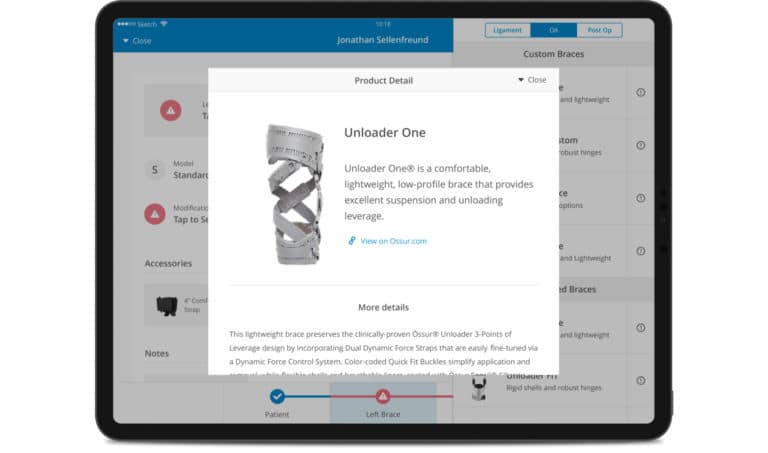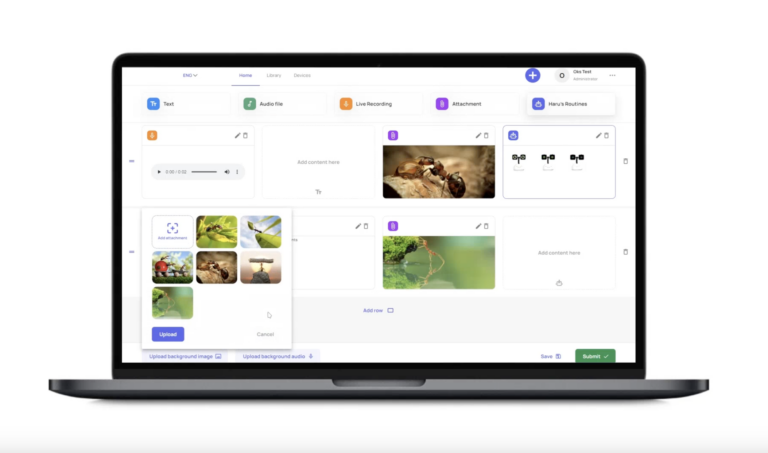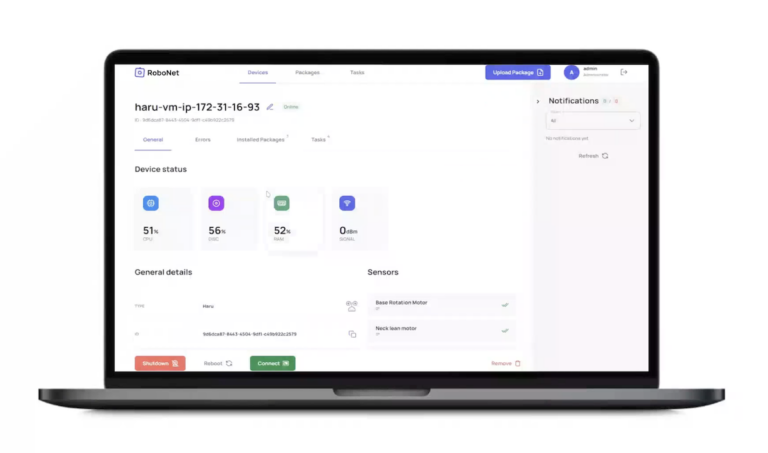Murat Abur from Suade Labs Sits Down to Discuss All Things Regtech
Suade Labs, founded in 2014 with the intention of offering a software solution to automate regulatory data requirements for financial institutions whilst simultaneously minimizing the cost. Suede works closely with the financial industry participants and regulators with the aim of making regulation better—essentially creating smarter, better regulations that provide benefit to society.
Regtech, the new kid on the block, making waves and becoming ever more sought after. As more and more questions arise due to the security and ethical concerns about our data, and its handling, an equally increasing number of companies are realizing the value and necessity of regtech services as a vital component to their company’s growth.
200+ companies from 25 countries outsourced software development to Relevant
We provide companies with senior tech talent and product development expertise to build world-class software. Let's talk about how we can help you.
Contact usMany consider regtech a subset of fintech, yet in actual fact, it works in a different direction than fintech and exists to solve the problem of compliance. Murat Abur, Co-Founder and CTO at Suade, shared with Relevant how he believes that regtech is the necessary component of the future, embedded at the core of everything digital and now, post-covid, it will only be required more than ever.
In this article, Murat highlights how the legacy ways of thinking and its regulations are holding the industry back, and how such out of touch ways of working are costly both in time and in hiring.
Table of Contents
Murat, for starters, tell us a little about Suade. How is Suade contributing to the financial market?
Suede is perhaps one of the first Regulation Tech companies, appearing on the market back in 2014/2015. At this time, there were already plenty of fintech companies starting out, competing with banks, providing payments or peer to peer lending, and even eating up a lot of their trading business. Coming from a banking background, I was able to see the things that banks did, but what startups, most likely, wouldn’t want to do in the future. We’ve seen this play out over the years, and so we bet on banks still being around in 10 years time, but, no doubt, desperately needing help in dealing with much of the operational and administrative burdens—the things that come with running a big bank and managing risks on a global scale.

What’s Suade’s vision for the future?
Initially, our vision was to offer a service that solves regulatory problems for banks to differentiate ourselves from the traditional fintechs. Other traditional fintechs, at this time, were involved with issues on the financial side that may or may not have been regulated. And so this was in essence our vision – initially focused on prudential regulations, which are more quantitative and objective, compared to the software compliance-based regulations such as KYC, or money laundering, which are slightly more grey and less objective in nature. Our focus is more directed to the computational calculations side of things, capital, liquidity, risk and so on.
Year on year regulations are becoming ever more complex due to their manual component. How does Suade aim to tackle and eventually solve this issue?

This is a great point and in general the same reaction the majority of people have when they approach regulation for the first time. A good analogy we like to use when approaching this, take a tree for example, try to understand a tree by looking at its leaves and soon you will realize it becomes very hard to understand the tree as a whole. Whereas, by starting with the trunk, you see that the leaves are appearing out of branches, which come out of the trunk, and so on and so forth, making it much easier to understand how the tree actually works, how the tree grows, and what will happen to it in the future. We adopted this way of thinking, this breakthrough approach, when dealing with regulation because, by starting with the trunk, you are in essence starting with an area in which holds the core data attributes, which then eventually feeds all the regulations, and future regulations that you deal with. This approach is the bedrock to our system.
This is a data standard, which I don’t like to say we created, although we did create the technical specifications, we actually discovered the data within the legislation and so in many ways the fire data standard is the data model that exists within the legislation written by the EU, the Bank of England, the UK Government, and the various other regulators around the world.
What are the fundamental complexities your company is currently facing or has faced whilst trying to establish your product’s fit in the market?
When regulations are published, they are inherently describing the data standard, even if it’s in words, and not in sort of technical specifications and so by unearthing the status standard, you see a lot of similarities. When a new regulation is published, they’ll reuse similar terms, and similar attributes, they’ll reference paragraphs from previous regulations and so you will get all of this for free if you’re already using this data standard. Therefore, this process actually makes dealing with ‘new leaves and new branches’, if you will, very, very simple.
How does the current situation in the UK talent market, and the regtech market look?
Initially, we started off in the UK, but in only a short time we came to quickly realize that the majority of the UK’s regulations come from Europe, consequently leading us to branch out into the European market and regulations, with ease and at speed. We have managed to branch out even further, into countries such as Singapore and other places in Asia and Australia, South Africa, and South America. Right now, we are making a significant effort to push into the US and Canadian markets.

In every new jurisdiction, we tap into. We have identified the trend that many of the regulations that exist in these new areas for us have many overlaps with the regulations we’ve already implemented. This leaves our customers and partners often surprised by how quickly we are able to get up to speed and with the problem, handling the necessary software. There’s a lot of work going on behind the scenes for creating global harmonization, at the legal level between these governments and central banks around the world. They are working to ensure that the global financial systems are compatible, so that when people trade across national borders, the risks are well defined, and the products are well defined, giving regulators the ability to understand the global view of the financial markets. The same harmonization that happens at the legal level is then brought in at a data level, and then, therefore, at a software level. And so, it is true that we are living through some very exciting times, with new regulations being published every few months, causing not only the platform to grow but also regulations to constantly evolve.
In today’s reality, is it expensive to hire an internal team that aligns with the FCA’s requirements?

Experts in this field are extremely hard to come by, and often when found, they come at an expensive cost due to their focus areas, it isn’t something that scales very well. For example, you can’t read a 600-page regulation faster just by having ten experts, because regulations are typically interconnected and really the text should be studied by one person only. It’s difficult to digest a 600-page regulation when only read in parts.
We try to use NLP and machine learning in order to automate that regulatory understanding. So by understanding regulations across the globe are relatively similar, regardless of their geographical location, we are able to understand the logic and the software that applies to one regulation of data is also in some way similar to one we have worked with previously. Therefore giving you the ability to reuse modular software components to deal with new regulations.
What are your predictions on how regtech can transform?
So, to start with, the intention of regulators is to make the financial system safer for consumers and those involved in the markets, which, ultimately, all of us across the globe are. Every one of us in some way shape or form banked and in the market. Whether that’s through having a deposit account, a mortgage or trading financial derivatives. What this essentially means is the financial system or sort of more fair playing ground. The challenge is that the rules are very complicated and they take a lot of expertise to understand. So instead, by implementing technology to implement those rules, the technology can alert you to specific things that need highlighting and potentially even point you to the specific rules you need to read.

And so, regtech could implement these actions in order to make these iterative cycles of regulation faster. Take, for example, how the rules making system works. Typically data is gathered from firms on a monthly basis. Next, the data is then analyzed by supervisors and by regulators, and therefore in doing so, this data then forms a consensus picture about what’s going on in the economy. Following this, other financial levers can start to be pulled, such as the changing interest rates or capital requirements can change in various ways, even publish new regulations, with us needing to adapt those. But this process takes many years – the second edition of the capital requirements regulation came out many years after the first. And so, if we could shorten these timelines of five or six years to an interval of say six months, it would give regulators a chance to be more proactive in how they regulate and potentially if the technology is interactive enough, different banks with different business models can be regulated differently as well.
And so in implementing such steps, better utilization of these will create a more dynamic and a lot more fluid system.
And so we are now moving away from the outdated regulation system used 50 years ago, in which the CFO and the executive team of a bank would speak to the regulator and discuss the finances and balance sheet etc, to the modern-day of data having this dialogue. Obviously, those conversations still happen. But the majority of information is transmitted in the data. If that data is flowing through every month – great, if every week, it’s even better, every day, every hour, to the point where the data is just a continuous back and forth flow. That’s the stage you want to get to. We want to build the technology to enable regulators to have that kind of power over the system.
Do you believe that open source can transform how financial regulation is implemented and supervised?
Absolutely. I believe that it was actually the first decision we made was to open source our data standard. Firstly, because the legislation, the regulation is open source, it’s free to read and free to view online. But more importantly, open source is a fantastic product development model for problems that are shared amongst people.
So security, for example, is a great use case for open source technologies. Everybody wants their software to be secure. And so, by publishing security software, open source means that anyone can find problems, find bugs, and make it more secure.
Similarly, regulation is a common problem across the industry. And I think perhaps during the financial crisis, or 10 years ago, you would have found the kind of banking mentality ‘let’s try to get around the rules and find ways to circumvent the regulation to make money’. But that way of thinking has largely gone. People and companies nowadays want to be fully compliant, as fast and as cheap as possible, which makes it a great use case for open source. I definitely think, the more open source work that banks and regulators can contribute to it, the better it will be for the ecosystem.
Do you see ways to explore and promote opportunities for open collaboration between financial institutions, technology firms, services providers and regulators?
Many projects are in fact underway. They involve regulators, technology vendors like us, and the regulated firms, banks, etc. And the momentum of any project like these, depends on the people involved. Every good project needs a good leader and so depending on the leadership team, the momentum sort of comes and goes, resulting in it being difficult to coordinate. This then causes frustration because they move slower than everyone would like. It is a tricky one to solve though, because it’s a huge and complex domain, especially if just one person is leading it. There are all but a few who understand the public sector regulatory side, the banking sector, the private side, and also the technology and so it makes it rather complex.
Collaboration is also another thing it requires and decisions need to be thought through meticulously because the impacts of a wrong move could make huge and unwanted impacts. Let’s take the airline industry as an example. People often say, “Oh, I can’t believe we’re flying airplanes that are 50 years old”. However, what they aren’t aware of is the many layers of evaluations, and steps the airplane has to go through when making even the smallest of changes in order to meet the necessary safety requirements. This idea is reflected alike in the financial system. Innovation is not always the right answer. Yes, you have to move forward, but it must be done carefully. Striking that balance is the real challenge here.
Is data safety the primary issue of today’s businesses and in the technology industry?
The topic of data privacy is one of real importance. And what makes it harder is, if you don’t give and therefore, trust someone with your data, then the services they can provide you with are extremely limited. We nowadays have to make a trade off between the risks and the benefits of doing so, The way bank’s approach it, and I consider it to be the correct way to approach it, is they sort of tend to grade their data on a scale of, say, one to ten, determining it\s level of sensitivity and privacy attribute. I really believe banks are very careful in dealing with data privacy issues. And they’re very diligent in this respect. But this brings us to the notion of expiry. So there is a some data which eventually expires, so for example, I went to a restaurant five years ago, that information is most probably no longer as useful as where I went to eat last week, because my tastes may have changed. I may have become vegan since then, I may have moved to a different country, there are lots of different variables and so this date in essence expires. I have heard numerous times people equivalating data to being the new oil. Yet, oil doesn’t expire, and so maybe data can be considered a more ephemeral thing. It is valuable now, but its value decreases over time, depreciating just as a fixed asset does. For example, you buy a laptop today, but in three years, that laptop is worthless. And so, I think it’s also good to think about data in those terms of timelines. And once you think of it like that, it becomes easier to find this middle ground where you can say, I’m comfortable giving this data away and getting this benefit from that.
The primary reason to turn to regtech is for the decreasing costs and acceleration timelines. Perhaps you could explain how it can help do this?
Regtech enters that space where you can build a solution in house that solves a particular regulatory problem, but it’s very likely the solution you have built is 95% identical to the solution, another bank has already built. This is due to the lack of proprietary input in your regulatory interpretation. However the program that you’re writing turns out to have a huge amount of overlap, therefore, giving a regtech provider economic leverage. Thus by doing it once, it turns out it is better for everyone. And so, the real benefit is from the non cost angle, as it’s easier for a single technology company to produce a solution for a particular regulatory problem, than for every bank to do it themselves individually.

As for accelerating timelines and changing regulations. If you’re a small player, and the regulators are conscious of this, they don’t want smaller players to get left behind. During the financial crisis, we have this issue of too big to fail. Ideally, we don’t want a financial system dominated by four or five massive banks, and by negligible players. It is far more desired to have a system which has a fairer distribution. In order to achieve this, you have to lower the regulatory barrier to entry, which can be done by providing a technology that actually houses a majority of the information, as well as the regulatory knowledge needed to get those smaller players up to speed for. Thus, you can see technology in this way being a way of distributing information.
A great example to take a look at is tax software. In the UK, there’s a really impressive self assessment online tax tool. It asks, something like, what was your salary? How much tax did you pay? What is the tax number from your payslip? Have you ever acquired interest on your bank account? After which it computes the tax you are required to pay, and then asks for your debit card details to pay the tax, hassle free here. It’s such a wonderful way to pass on all the required tax information, without the need to read the tax code and gather all of that information to submit your taxes. Similarly, why should a building society have to read 1000s of pages of regulations to figure out which page applies to them or which paragraph concerns their particular products? Why shouldn’t we use technology that takes care of the hassle for us?
What specific trends have you seen which are likely to pop up in 2022?

One thing we can definitely say is that there are two big, let’s call them, macro trends that are currently unravelling.
The first is the rise in inflation rates. Inflation is soaring. Depending on the metric you look at, it’s between five and 10% in the past year, which is huge when the target for inflation should be at only 2%. And so something, naturally, has to give, and typically interest rates will be hiked to combat that. It creates a whole bunch of triggers in the financial markets and so people will start shifting their assets, their investments, being more choosy when they’re investing in riskier things like startups and technology, and so on. And so I think you will see people being more choosy about which fintechs are regtechs they want to support or they want to invest in.
In many ways I imagine it being a make or break year for a lot of companies in the sector. They will either shine or their stars will fade, resulting in yet another challenging year for us on the technology side.
Finally, the final stages of, hopefully, COVID coming closer to an end, if we go by what people are telling us, things are getting better, fewer hospitalizations, fewer deaths, fewer cases. We will observe this in the financial markets. Companies will start selling off their COVID trades, such as ZOOM, whose stock is down. So the return of employees to the office, the relaunch of projects put on ice, potentially because the ability to brainstorm in the office was removed, and so I predict a lot more creativity and innovation thanks to in-person interaction once again.
How did COVID affect your team’s morale?
Well, as a tech company we really can’t complain because it has been really good for business, and with ease the move to remote working was possible overnight. This elines with an objective we had since day one, which was to service our clients remotely. But emotionally it has been a challenge, especially as a small company because a lot of energy is absorbed by being in the same room as others.

Creativity comes when you are around the watercooler, discussing, creating and solving problems together. All of that was made far more challenging in a virtual world. We are all looking forward to having a more hybrid model of work. We all like working from home as it also offers peace of mind and the space when you want to focus. However, having more days in the office to be able to collaborate and brainstorm new ideas – we are looking forward to this.
How did you go about finding your team?
Recruitment is hard. It’s hard to find good people. But it’s also easy to spot good people when you do find them and so you have to be patient. Growing slowly lets you build and really define your culture, and how you operate, identify the things that are important to you. When your company doesn’t have a huge budget, you have to be very selective about what you do with your time and what you do with your money. And so we spent most of our time and our energy working together and building a good team spirit to create a more valuable team.
Your Next Read
Our core services:
Do you want a price estimate for your project?
Do you know that we helped 200+ companies build web/mobile apps and scale dev teams?
Let's talk about your engineering needs.
Write to us












